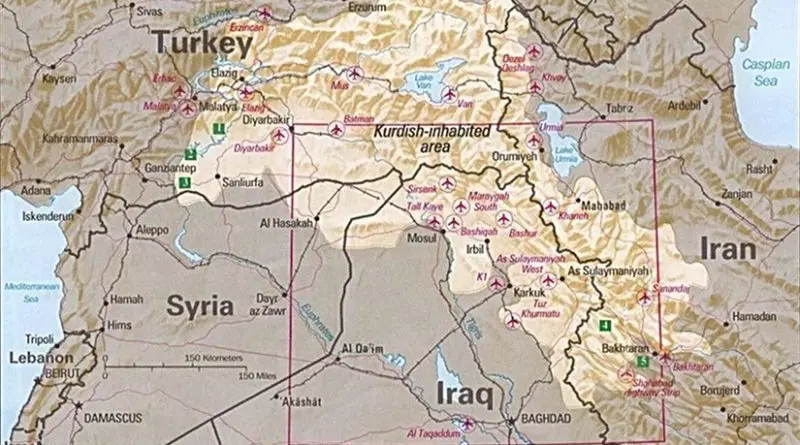Iraq And The Kurds: Confronting Withdrawal Fears
Iraq’s new coalition government and the Kurdistan regional government in Erbil must start talks on disputed internal boundaries or risk an outbreak of violent conflict along a “trigger” line dividing army troops and Kurdish regional guard forces, the peshmergas.
Iraq and the Kurds: Confronting Withdrawal Fears , the latest report from the International Crisis Group, examines the potential for violence as U.S. troops withdraw from disputed territories later this year. With U.S. help, the two sides implemented a series of security mechanisms – joint checkpoints and patrols – that have functioned well as an interim confidence-building measure. Local leaders worry, however, that without negotiations to forge an overall deal on the disputed territories’’ status, stability will end as U.S. forces withdraw.
“The security measures along the trigger line have kept the area calm, but the troop presence reminds the population that this situation is unsustainable without a settlement”, says Joost Hiltermann, Crisis Group’s Middle East Deputy Program Director. “The measures were established to buy time for negotiation, but there has been no progress”.
The oil-rich province of Kirkuk, which Kurds seek to bring into the Kurdistan region, is especially likely to see flare-ups, given the high stakes, recent protests against local government and deployment of peshmergas to its non-Kurdish areas in late February. Though the 2005 constitution lays out a process for settling the dispute, differences in interpretation and lack of political will have sidelined efforts toward a resolution. A new rapprochement between Prime Minister Nouri al-Maliki and Kurdish leaders during government formation late last year offers hope for progress, however.
Both sides must act on this current apparent goodwill by negotiating the disputed territories’ status, while also tackling the related question how to arrange management of Iraq’s hydrocarbons sector and share revenues from oil and gas sales. Negotiations should be inclusive of a cross-section of local leaders, whose commitment to a deal between Baghdad and Erbil could ensure its implementation.
In the interim, to prevent tensions from escalating, they must continue joint checkpoints and patrols and improve communication and security coordination. Both sides must also work to incorporate Kurdish security forces in the federal security architecture. In addition, there needs to be greater diversity among security forces deployed in the disputed territories to reflect local society’s ethnic and religious diversity.
The Obama administration should give its full support to efforts by the UN Assistance Mission for Iraq (UNAMI) to bring the parties to the table and reach an overall deal on territories and oil. And it should use its military assistance to encourage the two sides to refrain from unilateral military moves and instead engage in confidence-building steps.
“Baghdad and Erbil should seize the opportunity created by the formation of the coalition government”, says Robert Malley, Crisis Group’s Middle East and North Africa Program Director. “The security situation could deteriorate as U.S. troops pull out, so the time for the regional and federal governments to act is now”.

